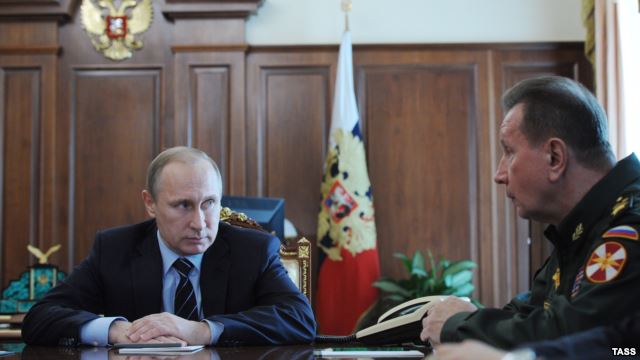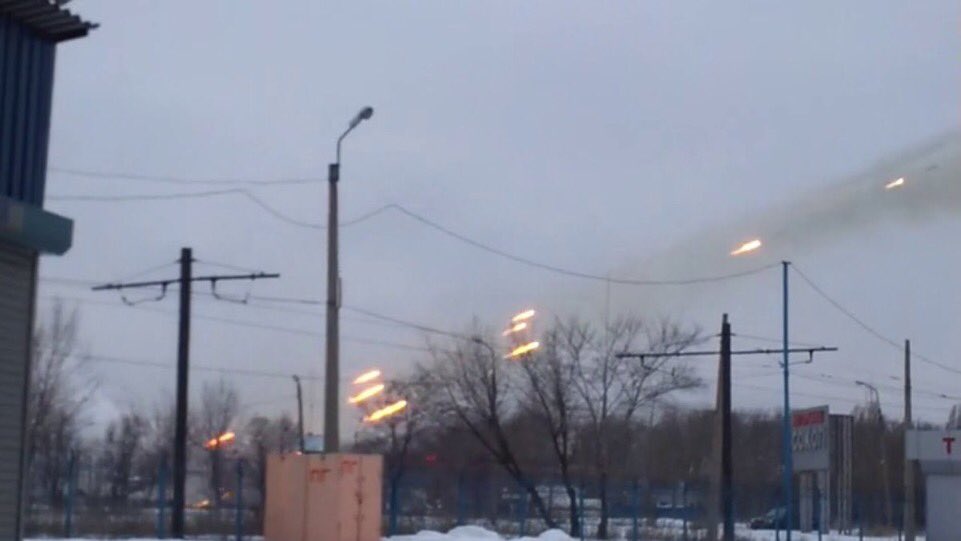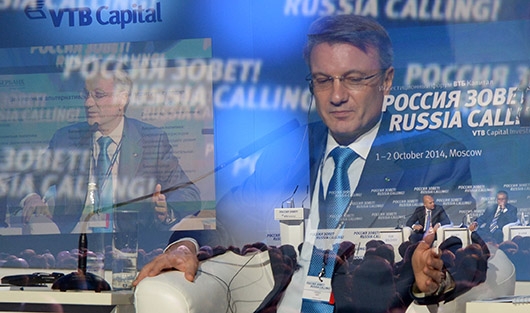Ukrainian commentator Vitaly Portnikov argues that the goal of the Ukrainian government should not be “the restoration of territorial integrity at any price but rather the undermining of the economy of the aggressor country and the collapse of Putin’s political regime.”

Western media say that the EU and the US “do not intend” to lift their sanctions against Russia “in exchange for cooperation in the struggle with international terrorism. This is completely logical: Russia was sanctioned in response to its annexation of Crimea and the occupation of the Donbas,” he says.
Thus, these sanctions against Russia will be extended at the upcoming EU summit. But the real question is “for how long?” And Ukraine has a vital interest in that question.
The Kremlin understands all this perfectly well, Portnikov says. It assumes that sanctions will be extended for several months, and consequently, it plans to use that time to “show that Ukraine itself is not fulfilling the Minsk agreements” while Moscow is doing everything necessary so that the sanctions won’t be extended again.
Instead, the West will increasingly view both Russia and Ukraine as being to blame and therefore there will be calls not to punish only one side, something that will contribute to pressures to lift the sanctions against Moscow and push for “a final resolution of the conflict and the restoration of the territorial integrity of Ukraine all together.”
Given that “the crisis in the Donbas could be solved in 24 hours if Putin ended the occupation and support of the militants,” that is Moscow’s position, the one it is “discussing with representatives of the pro-Russian lobby in the West,” Portnikov says. And that reality should dictate Kyiv’s approach and negotiating goals.

“Kyiv’s chief task must be the extension of sanctions against the aggressor for the maximum extent possible [now] and work for their further prolongation” when more decisions are made in the future, he argues.
And he says that Ukrainians “must remember that our goal is not the restoration of territorial integrity at any price but the undermining of the economy of the aggressor country and the collapse of the political regime of Russia. Only this – and nothing else – will secure us long-term security and normal development in the future.”
Portnikov’s position on this will infuriate many in Ukraine but even more in Moscow and the West, both of whom have made the issue of the restoration of the territorial integrity of Ukraine, albeit defined in entirely different ways and to be used for entirely different purposes, the centerpiece of their policies.
But Portnikov’s realism on this point is likely to spark new debates on how Kyiv should proceed especially now when many in Moscow are demanding and many in the West are considering an easing of the sanctions regime imposed on Russia because of its actions in Ukraine in the name of cooperation between Russia and the West in the war against ISIS.



![A "Pussy for Putin": In 2010, 17-year old Alisa Kharcheva in a group with other 11 students and would-be students of Moscow State University starred in an erotic calendar for Putin's 58th birthday as Miss April. In 2012, Kharcheva posted these photographs with a cat and Putin portraits in a personal blog post entitled "Pussy for Putin." Then she sent a formal notice to Putin’s office and posted her phone number on her LiveJournal entry just in case. “Until Vladimir Vladimirovich decides to pick up his [birthday] gift, the kitty will live with me,” she wrote. According to Reuters, in 2015, a business associate of Arkady Rotenberg, a close friend of Putin, transferred into her possession an apartment in a smart gated complex in a desirable part of Moscow. She was 23 at the time. (Image: Alisa Kharcheva)](https://euromaidanpress.com/wp-content/uploads/2017/01/Kharcheva_0411.jpg)
